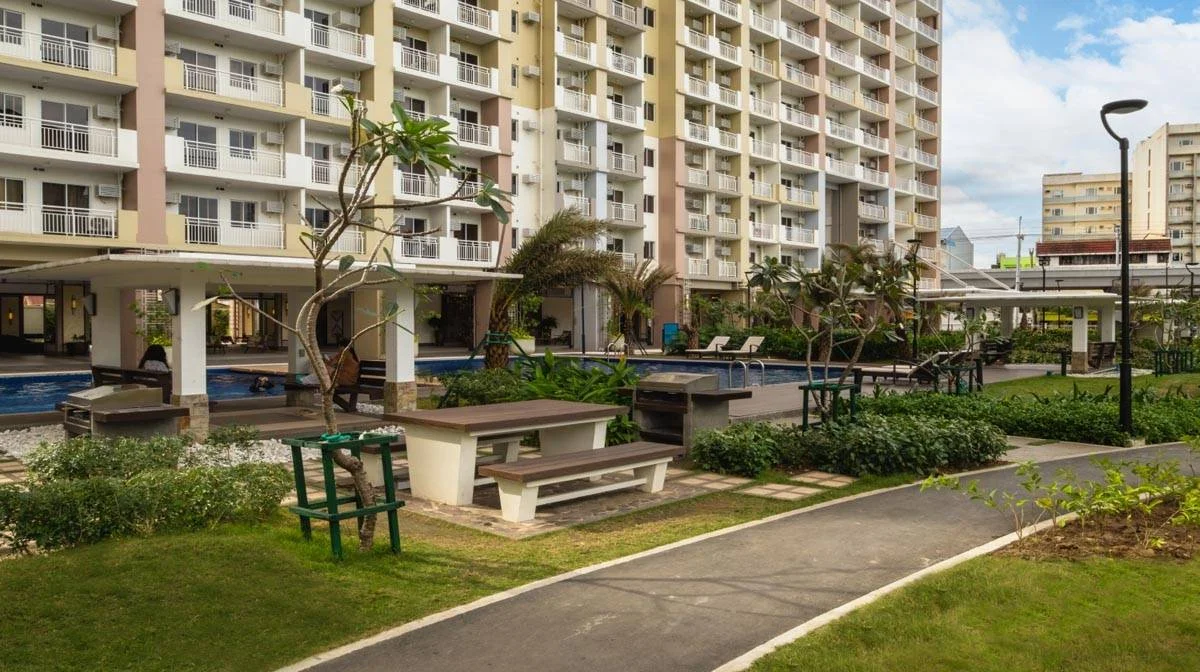Choosing the ideal condo tenant is essential for a smooth and successful renting experience as a responsible condo owner. A crucial first step in this process is tenant screening, which gives you the knowledge and resources you need to choose the right tenants for your property. By carrying out rigorous tenant screening, you can minimize risks, safeguard your investment, and create a productive and advantageous working relationship between you and the renter.
There are several types of condo tenants and finding the one who can pay the rent on time is only one aspect of tenant screening. You should also choose a renter who will respect your property, follow house rules and laws, and create a peaceful living environment.
When you implement a thorough screening process, you tend to get a better idea of the applicant's creditworthiness, rental history, and general dependability. This then lets you steer clear of possible issues like property damage, late payments, or disputes with neighbors.
Continue reading to learn how to define tenant criteria, run background checks, and use screening reports so you'll have a thorough comprehension of the tenant screening procedure.

Photo courtesy of Mimi Thian via Unsplash
Establishing tenant criteria
It's critical to set precise standards for the kind of renter you want in your condo before beginning the tenant screening process. Doing so can make it easier for you to choose dependable tenants who can take good care of your property. Take a look at the main factors you ought to take into account:
1. Understanding legal requirements
Fair housing laws - Familiarize yourself with fair housing laws to ensure that your selection criteria aren't biased based on race, color, religion, gender, familial status, national origin, or disability.
Local regulations - Check local and state requirements for tenant screening to ensure compliance.
2. Determine tenant’s financial stability
Income requirements - Set a minimum income standard, usually 2.5 to 3 times the monthly rent, to ensure that tenants can afford it.
Employment history - Look for a consistent employment history, ideally with the same employer for at least six months.
Credit score - Establish a minimum credit score to assess financial responsibility. A score of 650 or more is commonly regarded as good.
3. Check rental history
Previous landlords - Request a track record of favorable recommendations from prior landlords.
Eviction history - Set criteria to disqualify applicants with prior evictions, usually within the last 3-5 years.
Rental Payment History - Look for a history of timely rental payments.
4. Assess background
Criminal Background - Set criteria for criminal background checks. Determine which offenses (e.g., violent crimes, drug offenses) will disqualify an application.
Behavioral Red Flags - Exclude applicants who have a history of disruptive behavior or neighbor complaints.
5. Evaluate personal factors
Household Size - Ensure that the number of residents corresponds to the size and capacity of the unit.
Pet Policy - Decide whether to allow pets and, if so, describe the types, sizes, and numbers allowed.
6. Create an application process
Standard Application - Use a standardized rental application form to ensure that all applicants provide consistent information.
Application Fee - Set an application fee to cover the expense of background and credit checks.
7. Develop a scoring system
Weighted criteria - Weigh different variables (for example, income, credit score, rental history) according to their value to you.
Thresholds - Set a minimum threshold for each criterion. Applicants must fulfill or surpass these requirements to be considered.
8. Document your criteria
Written criteria - Keep a record of your tenant criteria. This promotes transparency and uniformity in your screening process.
Public Availability - Consider presenting your criteria with applicants up front to establish clear expectations.
9. Be consistent
Uniform application - To avoid charges of prejudice or favoritism, use the same criteria and screening method for all applicants.
Regular review - Periodically examine and update your criteria to reflect market changes or shifting objectives.
10. Seek professional advice
Legal consultation - Consult a real estate attorney to confirm that your criteria and screening process are in accordance with any applicable laws.
Property management - Think about hiring a property management company to help with tenant screening and adherence to standard practices.
Sample Condo Tenant Criteria
Here’s a sample of a tenant criteria you can create for your leasing activities:
- Income: Gross monthly income must be at least three times the monthly rent.
- Employment: Stable employment with the current employer for at least six months.
- Credit Score: Minimum credit score of 650.
- Rental History: Positive references from previous landlords, no evictions in the last five years, and no late rent payments in the past year.
- Criminal Background: No convictions for violent crimes, drug offenses, or property damage within the last seven years.
- Occupancy Limit: Maximum of two occupants per bedroom.
- Pets: Pets allowed with a maximum of one pet per unit, under 30 pounds, with a pet deposit and additional monthly fee.
Setting clear tenant requirements gives your screening procedure a strong starting point. You can evaluate potential tenants with assurance after you have these standards in place. Next, take a look at efficient screening techniques to collect and evaluate the required data so you can choose the best option for your condo.
Effective screening methods

Photo courtesy of Mimi Thian via Unsplash
Once specific standards have been set for choosing the perfect tenant, the next step is to use efficient screening techniques to collect and evaluate the relevant data. Here are some crucial pointers and tactics that can help you carry out thorough background checks of your potential tenant:
- Request written authorization. Getting written consent from the applicant is a must before starting any background checks. This stage guarantees compliance with privacy regulations and establishes an open and honest screening procedure.
- Verify their identity. Request any government-issued ID, like a passport or driver's license, to confirm the applicant's identity. Doing this assures you are evaluating the right person and helps prevent fraud.
- Check criminal history. To find any prior illegal activity that could endanger your property or other tenants, run a criminal history check on the occupants. You can also ask the candidate for a National Bureau of Investigation (NBI) clearance.
- Contact previous landlords. Getting in touch with the applicant's previous landlords can provide important details about their rental history. Through a tenant application form, you can ask about their overall tenant behavior, property maintenance, and punctuality of payments.
- Evaluate credit history. Local credit bureaus in the Philippines, such as the Credit Information Corporation (CIC), can provide credit reports upon request. A condo tenant who has a clean credit history is usually one who pays their rent on schedule and handles their money sensibly.
- Request proof of income. Verify the potential tenants’ employment and income by requesting a copy of their Certificate of Employment (COE) or BIR Form 2316. Doing so guarantees that their income meets your requirements for rental and provides additional reassurance regarding their ability to pay rent by providing details about their income and tax status.
With these methods, you can conduct an in-depth assessment of your potential tenants and ensure they fit your requirements to reduce risks. This will also aid in securing renters who are financially responsible and dependable.
Another important step in screening your potential tenants is to conduct interviews., Continue reading to the next section to learn how to determine your compatibility with your prospective tenants.
Conducting tenant interviews

Photo courtesy of Austin Distel via Unsplash
These interviews offer a chance to evaluate a potential tenant's suitability in addition to the data obtained from applications and background checks. Observing a tenant's mannerisms and conduct during an interview can reveal vital information about their character and dependability, allowing you to make a better-informed selection.
Moreover, asking particular questions during an interview enables you to learn crucial details about the tenant's expectations and way of life. The following are some pertinent and important questions to consider asking during the interview:
- What is your previous rental experience? Gaining insight into their past rentals allows you to assess their dependability and conduct as a tenant.
- How do you handle conflicts with neighbors? The ability to resolve conflicts is crucial for preserving harmony in the home.
- Do you own any pets? It's easier to determine whether their pet(s) and your property's pet policy match.
- What is your preferred method of communication? Specifying your preferred channel promotes effective communication and keeps all records in one place contributing to a smooth landlord-tenant relationship.
- Do you have long-term rental plans? Long-term tenants provide stability and reduce turnover costs.
- How do you typically maintain your living space? This discloses their maintenance and cleaning practices.
By posing these questions to them, you can determine whether the potential condo tenant meets your requirements and expectations.
Building strong landlord-tenant relationships
A good renting experience depends on building and preserving a solid relationship between the landlord and the tenant. A healthy relationship increases trust, lessens conflict, and makes a home more peaceful. Here are some tactics to assist you in creating and maintaining a positive landlord-tenant relationship.
1. Set clear expectations and boundaries early.
It's critical to set clear expectations and boundaries right away. This avoids miscommunication and establishes a courteous and professional rapport. These include timely rent payments, maintenance responsibilities, noise levels, and guest policies.
Create a thorough lease agreement that outlines the rental terms, house rules, and any special requirements. You can also outline the tenant's responsibilities for property care, such as keeping the unit clean, reporting maintenance issues on time, and following any unique house rules and regulations Make sure your tenant understands and accepts these agreements by having a discussion with them.
2. Maintain open communication
Maintaining a positive relationship and addressing concerns with your tenant depends on effective communication. Here are some methods to help maintain good communication:
- Establish clear communication channels. Pick your preferred communication means, such as phone calls, emails, or messaging applications, and ensure that your tenant understands how to contact you.
- Respond promptly. Address your tenant's questions and concerns as soon as possible. Quick replies demonstrate that you appreciate their problems and are dedicated to their contentment.
- Listen actively. When your tenant raises concerns, listen carefully and show understanding. This builds trust and shows that you take their issues seriously.
- Stay calm and professional. Maintain a cool and professional demeanor in the face of confrontations or complaints. Having composure when handling arguments aids in the de-escalation of situations and the development of acceptable resolutions.
- Offer solutions. When challenges arise, collaborate with your tenant to come up with efficient solutions. This method encourages cooperation and mutual respect.
- Document everything. Keep written records of all communications, agreements, and transactions. It can be extremely useful in resolving conflicts and ensuring transparency.
- Follow up. After resolving a problem, follow up with your tenant to check that the solution was effective and that they are happy with the outcome.
- Seek mediation if necessary. If a problem cannot be settled directly, try obtaining mediation from a neutral third party to help you reach a fair conclusion.
- Learn from feedback. Encourage your tenant to give feedback on their renting experience, and utilize that information to improve. This demonstrates that you value their input and are committed to improving their living experience.
Setting clear expectations and keeping open communication will help you avoid confrontations and build a strong, pleasant landlord-tenant relationship. This proactive approach promotes a peaceful living environment and raises the possibility of renewing and extending contracts.
If you'd rather avoid the effort of screening and managing tenants yourself, consider having your flats leased and managed by DMCI Homes Leasing.
DMCI Homes Leasing: Your partner in property management

Photo courtesy of DMCI Homes Leasing
DMCI Homes Leasing is committed to offering superior property management services to condo owners, resulting in a smooth and hassle-free renting experience. Its experienced team specializes in finding the best tenants and keeping your property to the highest standards.
How it works:
Partnering with DMCI Homes Leasing begins with a basic approach. First, you must enroll your unit with them by completing an application form and sending the required documents, such as proof of ownership and a valid ID. Once your unit is registered, the team will thoroughly inspect it to verify it fulfills quality standards.
Next, DMCI Homes will market your home to potential tenants. Interested applicants undergo a thorough screening procedure that includes background checks, credit checks, and verification of rental history. Once a suitable tenant has been identified, they handle the lease agreement, move-in procedures, and ongoing property management work.
Benefits of availing DMCI Homes Leasing’s services
One of the key advantages of availing of DMCI Homes Leasing’s services is the peace of mind that comes with professional management. They will handle all of the process of setting up your condo unit for leasing, from tenant screening to maintenance requests and rent collection. This allows you to enjoy a consistent rental income without the hassle of daily management responsibilities.
Furthermore, DMCI Homes' experience with tenant relations guarantees that any concerns or disagreements are dealt with efficiently. Lines of communication are always open, promoting a great rental experience. Moreover, its complete services also include monthly property inspections and upkeep, which protect the value of your investment and ensure tenant satisfaction. By choosing DMCI Homes Leasing, you can trust that your property is in capable hands.
Key takeaways
Finding the best condo tenant is vital for maintaining a smooth and successful leasing experience. A thorough tenant screening process will increase the probability of selecting tenants who are dependable, responsible, and respectful of your property. This protects your investment while also promoting a good landlord-tenant relationship.
By using these tactics, you'll be more prepared to find the ideal tenant and establish a happy living atmosphere in your condo.
Stay up to speed on DMCI Homes Leasing condo alternatives by following our social media pages on Facebook, X, Instagram, and YouTube.








